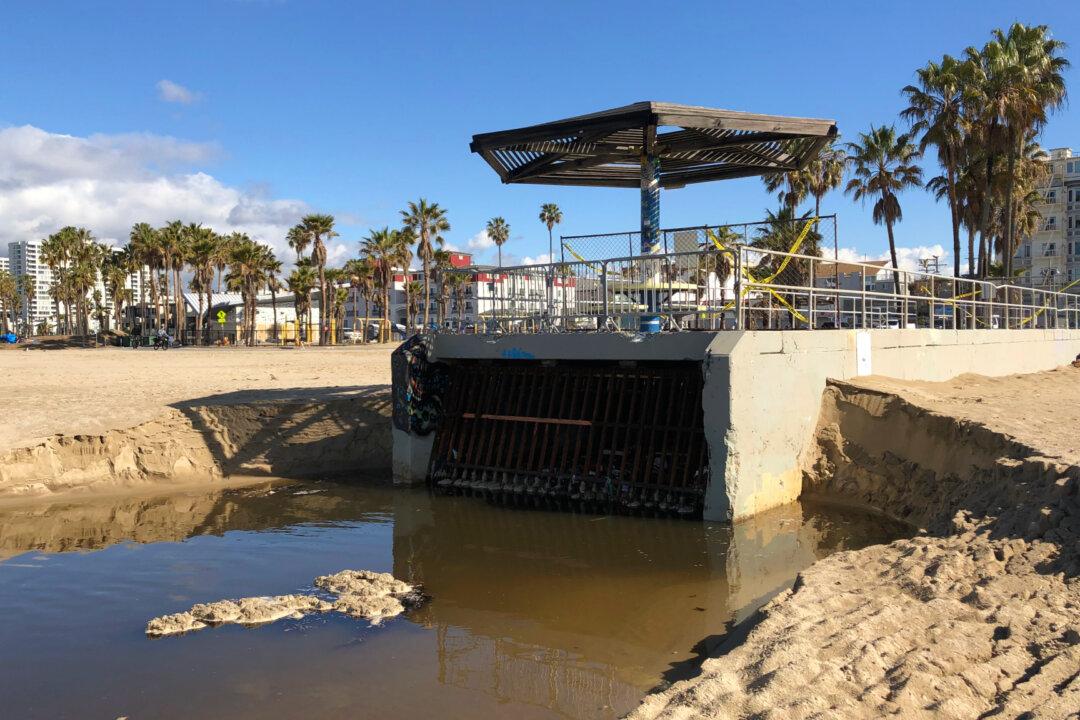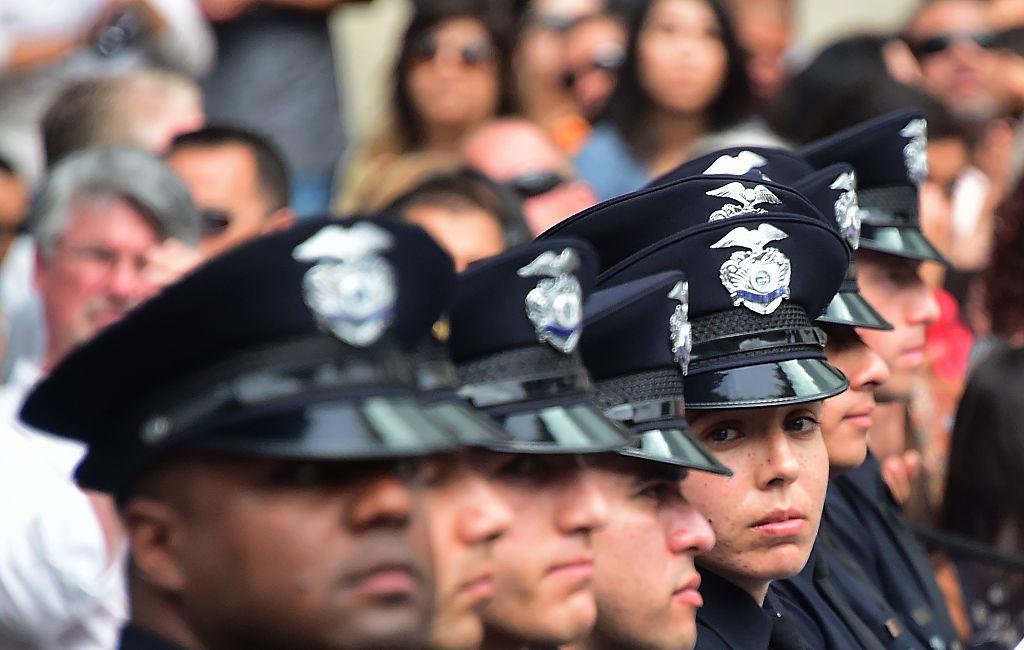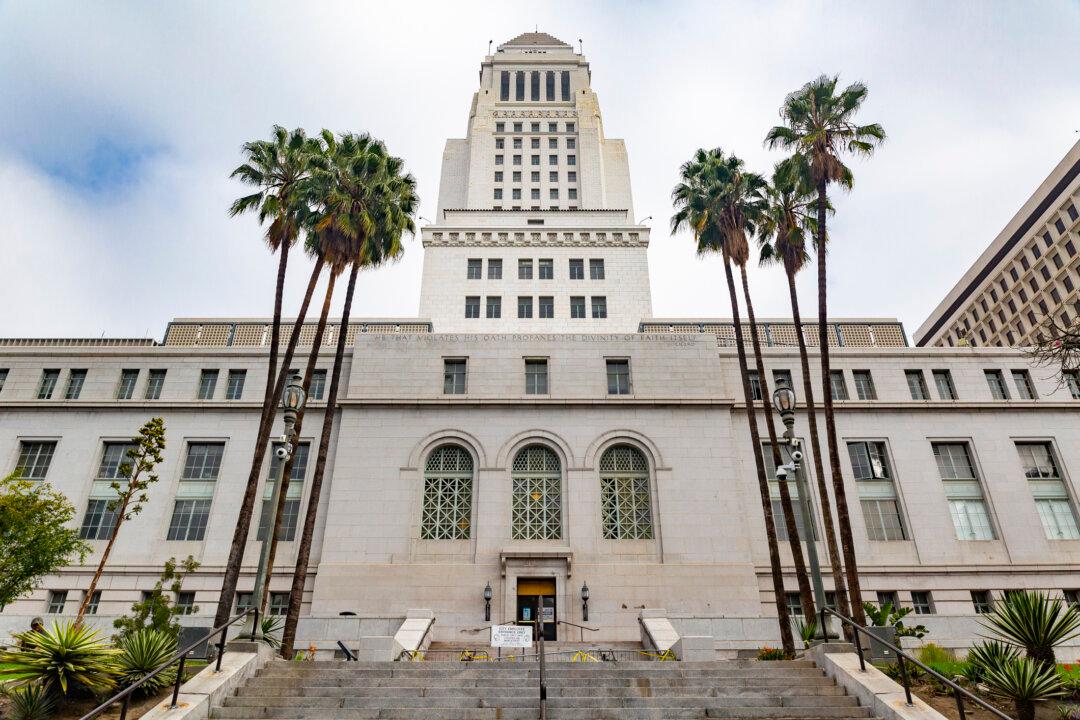LOS ANGELES—When Brian Averill began surfing in Venice Beach 20 years ago, he said one of the best times to catch a wave was the day after rainfall. It’s not unusual to see beachgoers enjoying a swim or a jog on the first day of sunshine after a storm, but Averill soon realized he was putting himself at risk.
“I would surf after a rainstorm, and I would always get sick, and it took me two or three years to figure it out. And finally, an older surfer said, ‘Do not, don’t go into the water after rain,’” Averill told The Epoch Times. “I would get ear infections, eye infections, sinus infections.”





